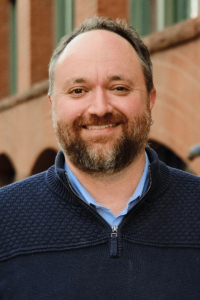Steve Fletcher was elected to the Minneapolis City Council for Ward 3 in 2017, winning a four-way race for an open seat. He said he ran on a platform of police reform, derived from his experience seeing police “persistently harass young black canvassers that I worked with as a community organizer.” He noted the police shootings of Jamar Clark in 2015 and Justine Damond in 2017, which, he said, “further cemented accountability as a central theme of that campaign year. The growing perception of our police is of a force too quick to draw guns, and too resistant to reforms…We need to shift the conversation on criminal justice reform to a broader conversation on community safety beyond policing.”
In an email, Fletcher noted that when Derek Chauvin put his knee on George Floyd’s neck, “It created a sense of urgency for our work toward a more just system of public safety. I’ve been working to respond to that sense of urgency and purpose, and am receiving a lot of encouragement.” Fletcher added that he’s called for the transformation of the city’s public safety system, and has taken “purposeful steps in that direction” while he’s served on the Council.
Among those steps, he listed co-authoring budget amendments establishing the Health Department’s Office of Violence Prevention; expanding the Mental Health Co-Responder program to all five police precincts; investing significant funding in the Next-Step Youth Violence Prevention program; and establishing and funding the 911/MPD Workgroup to analyze 911 response-code data and generate proposals for alternative public safety responses. Fletcher also co-authored the “Safety for All” budget plan, which includes, among other items, funding mental health crisis response teams, rerouting low-priority 911 calls to other departments, and approving an agreement with the Minnesota Department of Human Rights which, among other things, banned chokeholds and limited authorization for less-lethal crowd control weapons.
Fletcher noted that the city has more than tripled the annual production of new affordable homes, passed new renter protections, and adopted a “renter first” approach to housing inspections.Hundreds of new homes in Ward 3 have been approved, he said, and he will keep “insisting that affordable units are included in new development, and we need to protect the housing that’s still affordable in our neighborhoods, and we shouldn’t be satisfied until nobody is sleeping in tents or on trains.”
A coalition of local organizations sponsored a questionnaire to candidates about their views on changes in housing policies. To a question about Minneapolis now being a majority-rental city, Fletcher replied, “In order to meet everyone’s needs, we need an abundant supply of housing of all kinds, an abundant supply of housing guaranteed to remain affordable at all levels of income, rules that give tenants a fair chance at obtaining good housing, rules that allow tenants to feel safe from surprise increases or evictions in the homes they rent, and opportunities to buy for those who aspire to homeownership.”
Fletcher said that COVID has “disrupted every facet of our lives,” and the disruptions emphasized the economic inequalities in the city. He says the general feeling of being less connected is personal for him; a big part of his job is holding weekly coffees, topical events, and attending and hosting community meetings. “Virtual connections just are not the same, and we have to work a lot harder to help people feel connected to city government.”
Website: stevefletcher.org
Steve Fletcher
